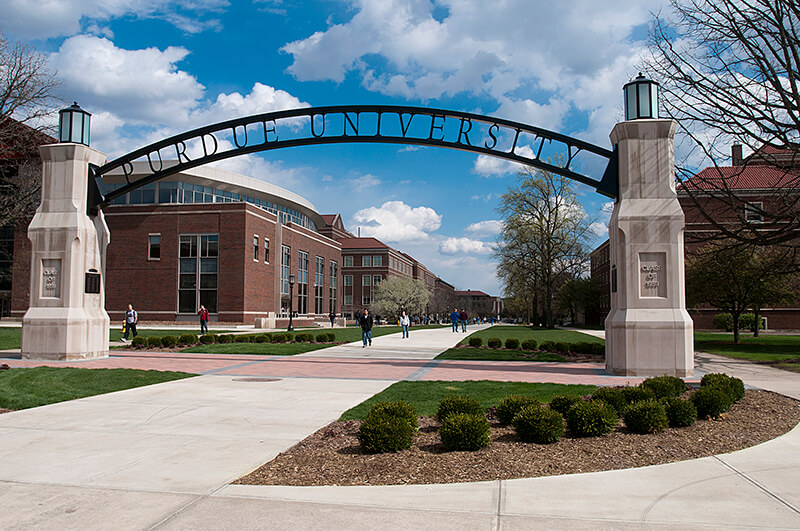September 14, 2020
Purdue announces ‘Health Care Inequalities Impacting the Black Community’ series

WEST LAFAYETTE, Ind. —The Purdue University Black Cultural Center, the College of Pharmacy’s Center for Health Equity and Innovation, and the College of Health and Human Sciences’ Department of Public Health are co-hosting a panel series titled “Health Care Inequalities Impacting the Black Community.”
This series will discuss and provide further insight into the numerous inequalities seen within multiple heath care systems.
“This series will analyze their impact on the Black community as well as other minority populations and open up a network for further discussion,” said Ula Gaha, BCC librarian and organizer. “The hope is that these panels will be attended by faculty, staff, students, Purdue alums, and the community in order to spread awareness and be a part of fostering a more inclusive environment for all.”
This series will have three virtual panel discussions with Q&A time and will be open to the public. Registration for all events is required and can be done online. They are as follows:
- Sept. 15: “COVID-19 and Health Care Inequalities Impacting the Black Community.” This panel discussion will address systemic inequalities that are disproportionately affecting the Black community with the COVID-19 pandemic. Panelists will be Dr. Brian Williams, associate professor of surgery in trauma and acute care surgery at the University of Chicago Medicine and Biological Sciences; and Sonak Pastakia, professor of pharmacy practice in Purdue’s College of Pharmacy. They will address topics including the heightened risk of contracting the coronavirus, the lack of available testing and inequities Black people face when seeking health care related to COVID-19. This event will take place at 7 p.m.
- Oct. 14: “Reproductive Health Care Inequalities Impacting the Black Community.” This panel discussion will address systemic inequalities that disproportionately impact the Black community around issues of reproductive health. Panelists will be LaKimba DeSadier, Indiana state director of Planned Parenthood of Indiana and Kentucky; Amanda Lamm, leadership development coordinator of the National Network of Abortion Funds; and Velvet G. Miller, Ryan program manager at Indiana University. They will speak on a variety of topics that affect all genders. This will include experiences seeking reproductive health care such as regular checkups, safe sex practices, pregnancy and perinatal care, childbirth, and postnatal care including the mental health of new parents. This panel will take place at 7 p.m.
- Nov. 16: “Health Care Inequalities in the Black LGBTQ Community.” This panel discussion will address systemic inequalities that disproportionately impact the Black LGBTQ+ community and its health care needs. Speakers will be Darrin K. Johnson, executive director, Brothers United Inc.; Dr. Rana Snipe Berry, assistant professor of obstetrics and gynecology, Indiana University School of Medicine; and Dr. Hannah Locke, assistant professor of clinical obstetrics and gynecology, Indiana University School of Medicine. They will address topics that affect all genders, including finding health care providers who work with LGBTQ+ patients, transitioning as a Black person, reproductive health, intimate partner violence, HIV/AIDS-related health care, and safe sex practices. This panel will take place at 7 p.m.
For more information about each installment, visit the BCC's Library website.
About Purdue University
Purdue University is a top public research institution developing practical solutions to today’s toughest challenges. Ranked the No. 5 Most Innovative University in the United States by U.S. News & World Report, Purdue delivers world-changing research and out-of-this-world discovery. Committed to hands-on and online, real-world learning, Purdue offers a transformative education to all. Committed to affordability and accessibility, Purdue has frozen tuition and most fees at 2012-13 levels, enabling more students than ever to graduate debt-free. See how Purdue never stops in the persistent pursuit of the next giant leap at https://purdue.edu/.
Writer: Bella Vina, ivina@purdue.edu
Media contact: Matthew Oates, 765-586-7496 (cell), oatesw@purdue.edu, @mo_oates
Source: Renee Thomas, rathomas@purdue.edu, @purdue_bcc
Journalists visiting campus: Journalists should follow Protect Purdue protocols and the following guidelines:
- Campus is open, but the number of people in spaces may be limited. We will be as accommodating as possible, but you may be asked to step out or report from another location.
- To enable access, particularly to campus buildings, we recommend you contact the Purdue News Service media contact listed on the release to let them know the nature of the visit and where you will be visiting. A News Service representative can facilitate safe access and may escort you on campus.
- Correctly wear face masks inside any campus building, and correctly wear face masks outdoors when social distancing of at least six feet is not possible.

